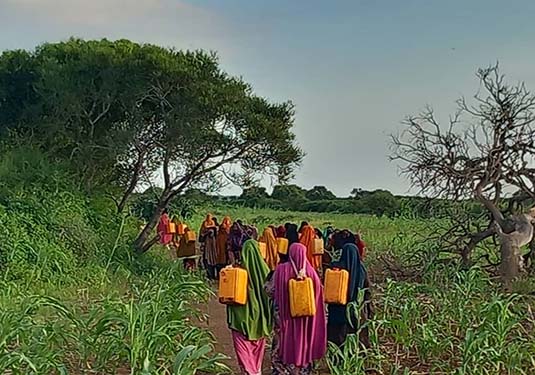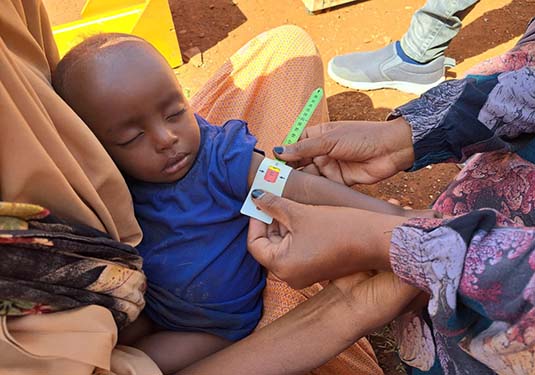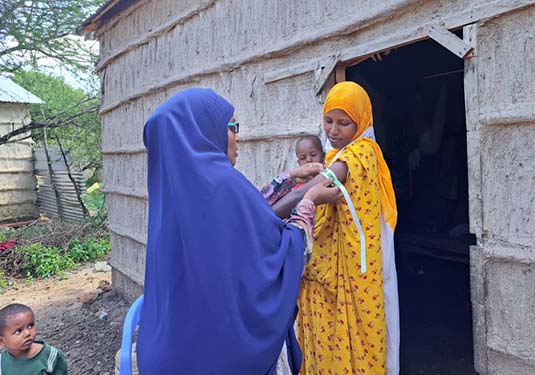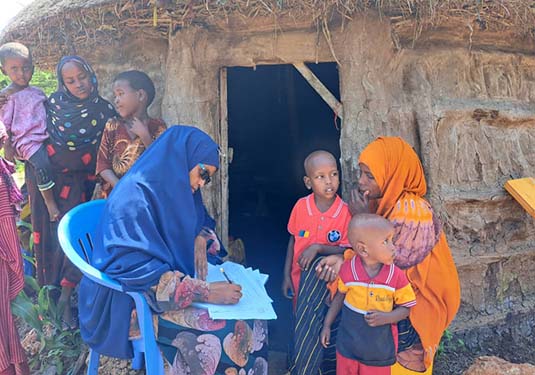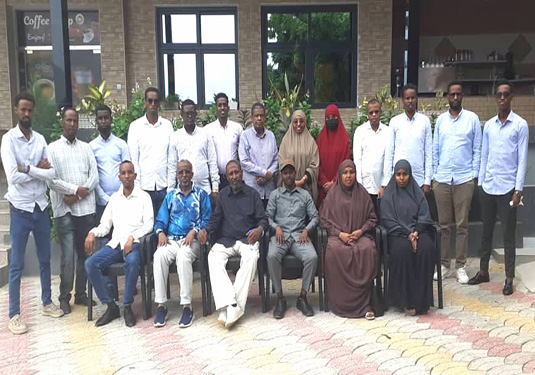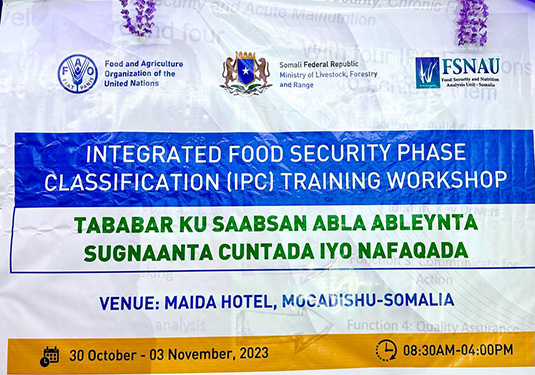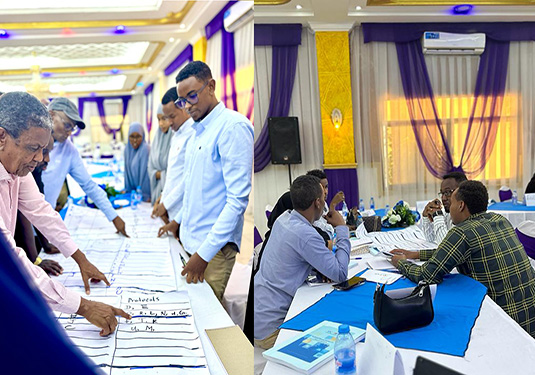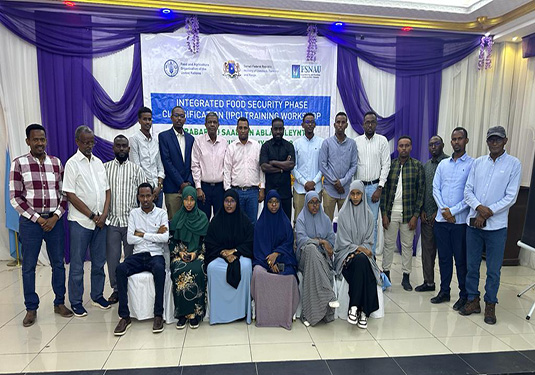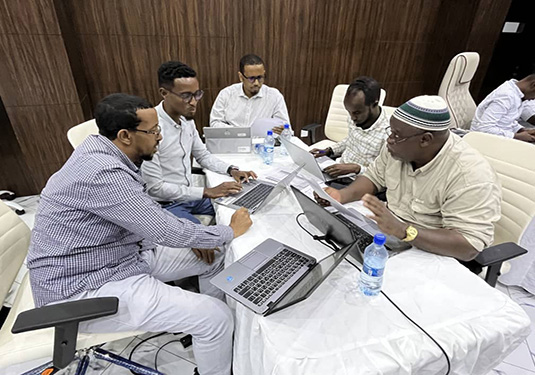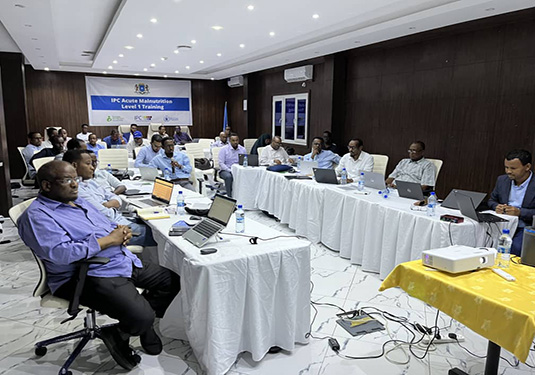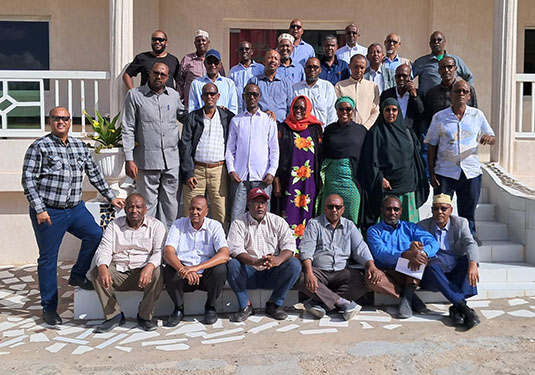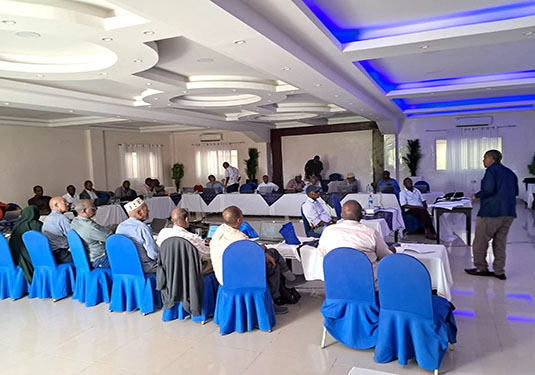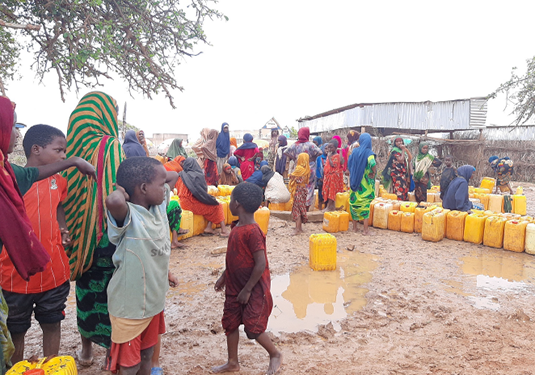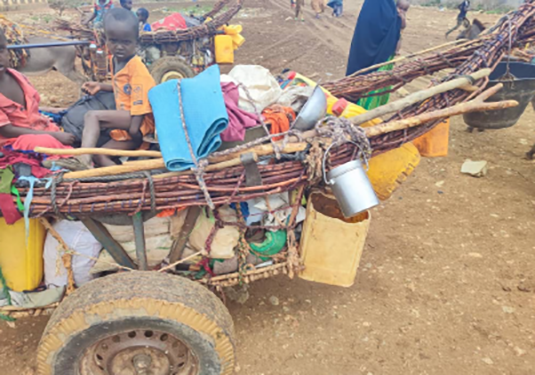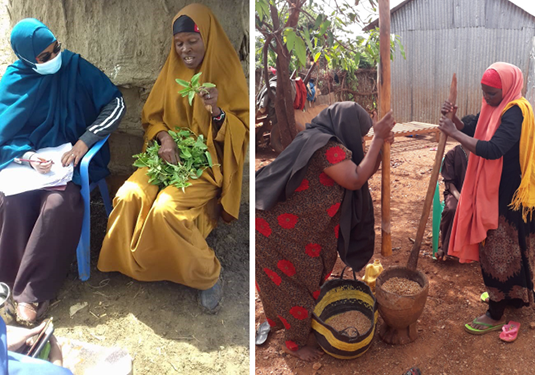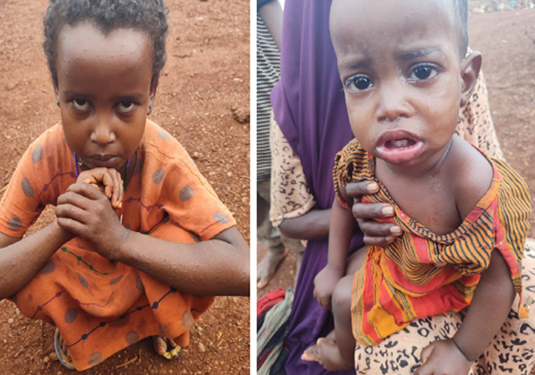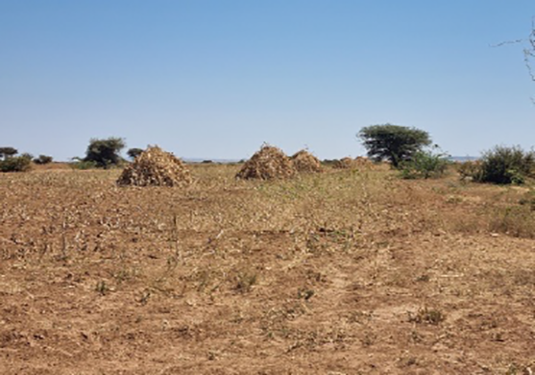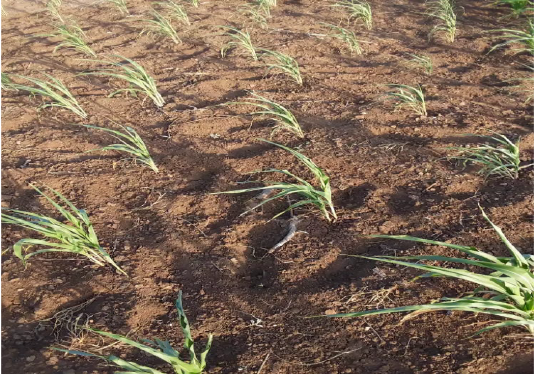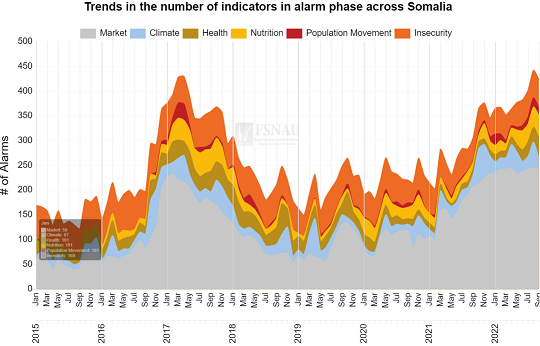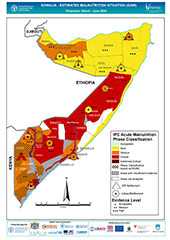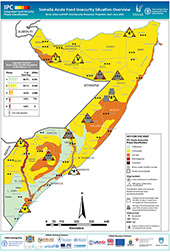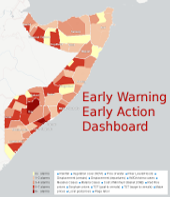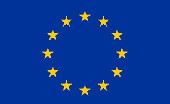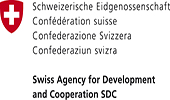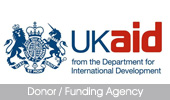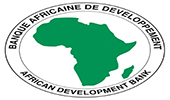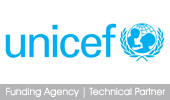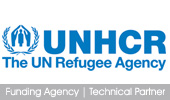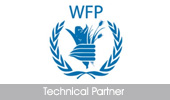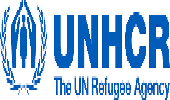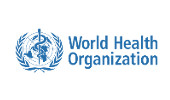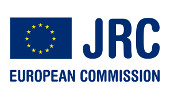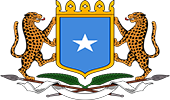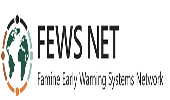Workshop for the establishment of Somalia IPC Technical Working Group, 25-26 Feb 2025, Mogadishu
IPC Training for SODMA Staff, November 2024, Mogadishu
FSNAU Staff Corse Skills Development Training Workshop (14 - 19 Oct 2024), Hargeisa
FSNAU Staff Core Skills Development Training, 13 - 20 Oct 2024, Hargeisa
FSNAU Staff Core Skills Development Training, 13 - 20 Oct 2024, Hargeisa
FSNAU Staff Core Skills Development Training, 13 - 20 Oct 2024, Hargeisa
Women going to fetch water in Baidoa. FSNAU Dec 2023
MUAC screening of children during the rural assessment in Bay region. FSNAU Dec 2023
Maternal nutrition (MUAC) assessment in Bay agropastoral. FSNAU Dec 2023
Interview with a mother in rural assesment in Bay. FSNAU Dec 2023
IPC Training for FGS and FMS MOAI Technical Staff, Mogadishu, 27 Nov-2 Dec 2023
Integrated Food Security Phase Classification (IPC) Training Workshop.__Maida Hotel, Mogadishu Somalia – 30 Oct - 03 Nov 2023
IPC training workshop for MoLFR, Maida Hotel Mogadishu - 30 Oct 2023
IPC AMN Training in Mogdishu Oct 2023
IPC AMN Training in Mogdishu Oct 2023
FSNAU Staff Core Skills Development Training - Hargeisa, May 2023
FSNAU Staff Core Skills Development Training, Hargeisa - May 2022
Women queuing for water in Baidoa. FSNAU Dec 2022
Newly arriving IDPs joining the old IDP camp in Baidoa. FSNAU Oct 2022
Left - Woman showing edible seasonal green leaves to the enumarator. Right - Women de-husking sorghum. FSNAU Dec 2022
Children with Measles in rural Baidoa. FSNAU Oct 2022
Poor yield sorghum harvest in agropastoral pastoral of Northwest. FSNAU, Dec 2022
Poor Sorghum Crop, War IIsho, Burhakaba, Bay region. FSNAU, Dec 2022






